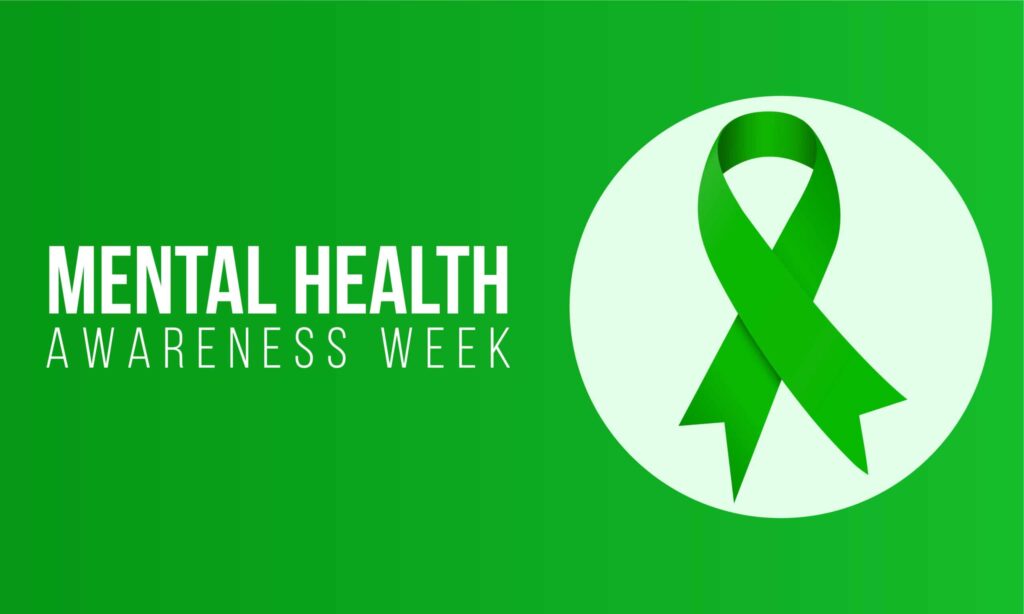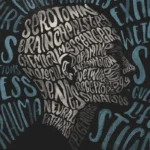Mental Health Awareness Week 2023 has arrived, bringing with it a powerful opportunity to prioritize conversations surrounding mental well-being. This year, the spotlight falls on anxiety, a condition that affects millions of people worldwide. In a society where stressors seem to multiply, it is crucial to understand anxiety’s impact, dispel the stigma surrounding it, and promote compassion and support. Join us as we explore the depths of anxiety, its prevalence, causes, symptoms, and most importantly, the steps we can take to foster a healthier, more inclusive world for everyone.
Understanding Anxiety:
Anxiety is not just a fleeting feeling of unease or worry; it is a pervasive and often chronic condition that can significantly impact one’s daily life. From generalized anxiety disorder to panic disorder, social anxiety, and phobias, anxiety disorders encompass a wide range of experiences. Yet, they all share a common thread: an overwhelming sense of fear or apprehension that exceeds what might be considered a normal response.
The Prevalence of Anxiety:
Anxiety knows no boundaries, affecting individuals across age groups, genders, and backgrounds. According to the World Health Organization (WHO), approximately 284 million people worldwide experience an anxiety disorder, making it one of the most prevalent mental health conditions. However, it is essential to remember that anxiety is not a mere statistic but a deeply personal struggle faced by countless individuals.
Causes and Triggers:
Anxiety can emerge from various factors, including genetics, brain chemistry, life experiences, and environmental stressors. Traumatic events, major life changes, chronic illnesses, or even a family history of anxiety can contribute to its development. Moreover, societal pressures, economic uncertainties, and the relentless pursuit of perfection often intensify anxiety levels in modern society. Recognizing these causes helps us address anxiety holistically and fosters a compassionate environment where support is readily available.
Recognizing the Symptoms:
Identifying anxiety’s signs is crucial for timely intervention and support. Common symptoms include persistent worry, restlessness, irritability, difficulty concentrating, sleep disturbances, muscle tension, and even physical manifestations such as heart palpitations or shortness of breath. It is important to emphasize that anxiety can manifest differently in each person, and the severity of symptoms can also vary. Encouraging open conversations about mental health allows individuals to seek help and find solace in shared experiences.
Dispelling Stigma and Fostering Support:
Mental Health Awareness Week serves as a platform to challenge the stigma surrounding anxiety. By fostering open discussions and sharing personal stories, we can dispel misconceptions, promote empathy, and encourage a more inclusive society. Education and awareness are key to dismantling the barriers that prevent individuals from seeking help or feeling understood. Together, we can create an environment where individuals with anxiety feel safe, heard, and supported.
Steps Towards a Healthier Future:
As we navigate the realm of mental health, it is crucial to prioritize self-care, emotional well-being, and open dialogue. Here are some practical steps we can take to promote a healthier future:

- Encourage conversations: By creating safe spaces for dialogue, we can ensure that anxiety and other mental health conditions are discussed openly, reducing stigma and fostering understanding.
- Promote self-care practices: Encouraging individuals to engage in activities that promote well-being, such as regular exercise, mindfulness, and healthy lifestyle choices, can significantly reduce anxiety levels.
- Seek professional help: If you or someone you know is struggling with anxiety, reaching out to mental health professionals is a vital step toward recovery. Therapy, counselling, and, if necessary, medication can provide the necessary support and guidance.
Getting Help with Anxiety: Taking the First Steps Towards Healing
Living with anxiety can be overwhelming and isolating, but it’s important to remember that you don’t have to face it alone. Seeking help and support is a courageous step towards healing and reclaiming your mental well-being. Here are some essential steps to consider when reaching out for assistance with anxiety:
- Recognize your symptoms: Take the time to understand and acknowledge the symptoms you are experiencing. Anxiety can manifest differently in each individual, so it’s important to identify the specific signs and how they impact your daily life.
- Talk to someone you trust: Sharing your feelings with a trusted friend, family member, or loved one can provide immense relief. Opening up about your struggles allows others to offer support, empathy, and possibly even personal experiences that can shed light on effective coping strategies.
- Consult a mental health professional: Consider seeking professional help from a therapist, counselor, or psychiatrist who specializes in anxiety disorders. These professionals are trained to provide guidance, offer coping mechanisms, and help you navigate through the challenges you face.
- Research available resources: Explore the mental health resources in your community or online. Look for support groups, helplines, or websites that provide valuable information and guidance on anxiety management.
- Schedule an appointment: Once you have identified a mental health professional or resource that resonates with you, take the step to schedule an appointment. Remember that seeking help is not a sign of weakness but a sign of strength and self-care.
- Be open and honest: During your sessions, be open and honest about your experiences and concerns. The more transparent you are, the better equipped your mental health professional will be to provide tailored support and treatment options.
- Explore therapy options: Therapy for anxiety can take various forms, including cognitive-behavioral therapy (CBT), mindfulness-based therapy, or exposure therapy. Your therapist will help determine which approach is best suited for your specific needs and goals.
- Consider medication, if necessary: In some cases, medication may be prescribed to manage anxiety symptoms. Consult with a psychiatrist who can evaluate your situation and discuss potential medication options. It’s important to note that medication is not always necessary, and the decision should be made in consultation with a healthcare professional.
- Practice self-care: Alongside professional help, prioritize self-care practices that support your mental well-being. Engage in activities that bring you joy, such as exercise, spending time in nature, practicing mindfulness or meditation, and maintaining a balanced diet.
- Build a support network: Surround yourself with understanding and supportive individuals who uplift and validate your experiences. Consider joining support groups or online communities where you can connect with others facing similar challenges.
Remember, healing takes time, and progress may not always be linear. Be patient and kind to yourself throughout the journey. With the right support and resources, you can learn to manage anxiety and lead a fulfilling life. Your mental health matters, and reaching out for help is a powerful step towards reclaiming your well-being.






